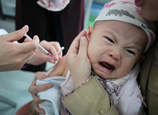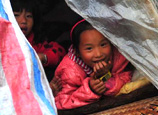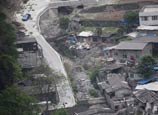
Chinese media reported several deaths of abandoned children in March.
Beijing News reported that on March 20, witnesses saw a young woman give birth to a boy in a tricycle near a building that sells electric gadgets in Beijing's Haidian district, and then abandon him.
Some volunteers sent the premature baby, who weighed about 2 kg, to a hospital, but the baby died because he had been exposed to low temperatures for more than 40 minutes, the report said.
On March 31, passers-by found a baby abandoned in a pink bag at the greenbelt in Shanghai's Putuo district. Police who arrived later confirmed the baby was dead, Xinmin Evening News reported.
Setting up areas for parents to surrender children remains controversial, as there are concerns about whether such facilities encourage immoral conduct and even lead to an increase in child abandonment.
Jennifer Renne, director of the National Child Welfare Resource Center on Legal and Judicial Issues under the American Bar Association, said no evidence to support those concerns has surfaced in the United States in its own experience with safe havens.
Since 1999 in the US, all 50 states have adopted safe-haven laws that give parents immunity from prosecution if they give up their children in hospitals, police stations and fire stations, she said.
Incomplete data "showed it led to an increase in babies left in safe places and a decrease in babies left in unsafe places," she said.
However, apart from launching baby havens, Renne urged the Chinese government to adopt a comprehensive strategy to protect abandoned children's rights with a greater effort in solving the underlying issues behind parents' decision to abandon their children, such as poverty and a lack of affordable public services.
More early intervention targeting families, especially mothers, including financial and psychological support, housing, employment and education, will help prevent abandonment, she said.
Zhang Shifeng, who heads the China Center for Children's Welfare and Adoption, said the center also plans to introduce the experience from Western countries of providing support for unwed mothers, a high-risk group for abandoning unintended children.
Hu Xiaolin, director of an orphanage in Chongqing, approved the launch of more baby hatches in cities, but he believes such facilities should be available in hospitals and busy streets rather than somewhere near orphanages, which usually are in suburbs.


Latest development of H7N9 in China[Special]
















 Photo story: 'Grassroots philanthropist' donates foods to quake zone
Photo story: 'Grassroots philanthropist' donates foods to quake zone


![]()
